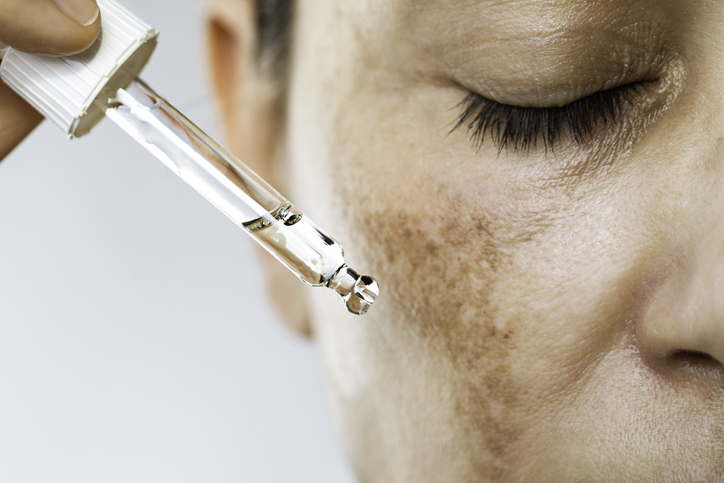Hyperpigmentation is a common skin condition characterized by darkened areas on the skin, caused by an excess production of melanin. This condition can affect individuals of all skin types and tones, leading to uneven skin tone and discoloration. You can find hyperpigmentation remedies with an online search.

What is Hyperpigmentation?
Hyperpigmentation refers to patches of skin that become darker than the surrounding areas. This occurs when melanin, the pigment responsible for skin color, is overproduced in certain spots. While it is generally harmless, it can be a cosmetic concern for many people.
Common Causes of Hyperpigmentation
Sun Exposure
One of the most significant causes of hyperpigmentation is prolonged sun exposure. Ultraviolet (UV) rays from the sun can trigger an increase in melanin production as the skin's defense mechanism against UV radiation. This often results in sunspots or age spots, particularly on areas frequently exposed to the sun like the face, hands, and arms.
Inflammation
Post-inflammatory hyperpigmentation (PIH) occurs after an injury or inflammation of the skin. Conditions like acne, eczema, or psoriasis can lead to this type of hyperpigmentation. The inflammation stimulates melanocytes (melanin-producing cells) to increase melanin production, leaving dark spots even after the underlying issue has healed.
Hormonal Changes
Hormonal changes, particularly in women, can lead to a specific type of hyperpigmentation known as melasma. This condition often appears during pregnancy or with the use of birth control pills and hormone replacement therapy. Melasma typically presents as dark, blotchy patches on the face, particularly on the cheeks, forehead, and upper lip.
Medications
Certain medications can also cause hyperpigmentation as a side effect. Drugs like chemotherapy agents, antibiotics, and some antimalarial medications can lead to increased melanin production. Additionally, topical treatments like retinoids can sometimes cause an initial darkening of the skin before improvement is seen.
Genetic Factors
Some individuals are more predisposed to hyperpigmentation due to genetic factors. Conditions like freckles (ephelides) and lentigines (liver spots) are often inherited and can become more pronounced with age and sun exposure.
Effective Remedies for Hyperpigmentation
Sun Protection
One of the most crucial steps in managing hyperpigmentation is protecting the skin from further UV damage. Daily use of a broad-spectrum sunscreen with an SPF of at least 30 can help prevent existing dark spots from worsening and new ones from forming. Wearing protective clothing and seeking shade during peak sun hours are also effective measures.
Topical Treatments
There are several topical treatments available that can help lighten hyperpigmented areas:
Hydroquinone: A skin-lightening agent that inhibits melanin production. It is available in over-the-counter and prescription strengths.
Retinoids: These vitamin A derivatives promote cell turnover and can help fade dark spots over time.
Vitamin C: An antioxidant that brightens the skin and reduces melanin production.
Azelaic Acid: This ingredient helps reduce inflammation and melanin production, making it effective for PIH and melasma.
Chemical Peels
Chemical peels involve applying a solution to the skin that causes the top layer to peel off, revealing fresh, evenly-toned skin beneath. Peels containing glycolic acid, salicylic acid, or lactic acid are commonly used to treat hyperpigmentation. It’s essential to have peels performed by a professional to minimize the risk of further pigmentation issues.
Laser Treatments
Laser therapy can be highly effective in treating hyperpigmentation. Different types of lasers target pigment in the skin, breaking it down so that it can be naturally eliminated by the body. Laser treatments should be administered by experienced dermatologists to ensure safety and effectiveness.
Natural Remedies
Some natural ingredients have shown promise in reducing hyperpigmentation:
Aloe Vera: Contains aloin, a natural depigmenting compound that can lighten dark spots.
Licorice Extract: Inhibits melanin production and has anti-inflammatory properties.
Green Tea Extract: Contains antioxidants that can help reduce pigmentation and protect the skin from UV damage.
Conclusion
Hyperpigmentation, while not harmful, can be a persistent and frustrating skin condition. Understanding its causes, such as sun exposure, inflammation, hormonal changes, medications, and genetics, is crucial for effective management. By adopting protective measures like sunscreen use, exploring topical treatments, and considering professional procedures like chemical peels and laser therapy, individuals can work towards achieving a more even skin tone. Additionally, natural remedies can offer supplementary benefits in the quest for clear, radiant skin.



